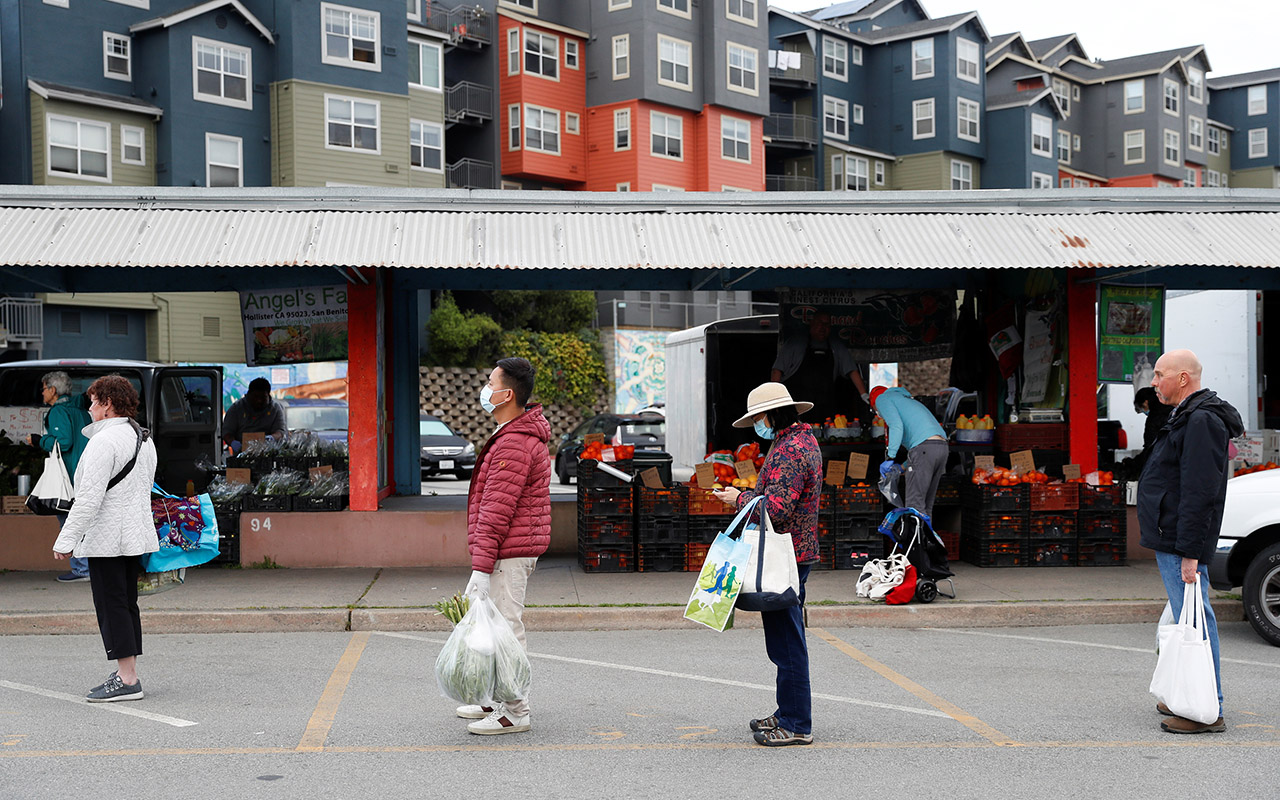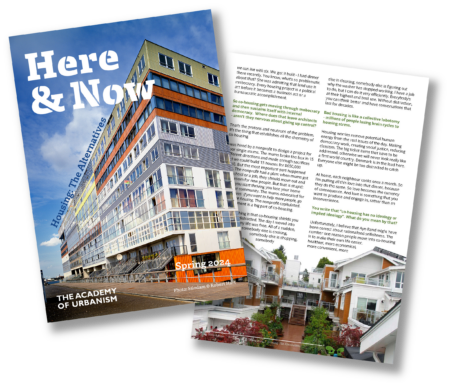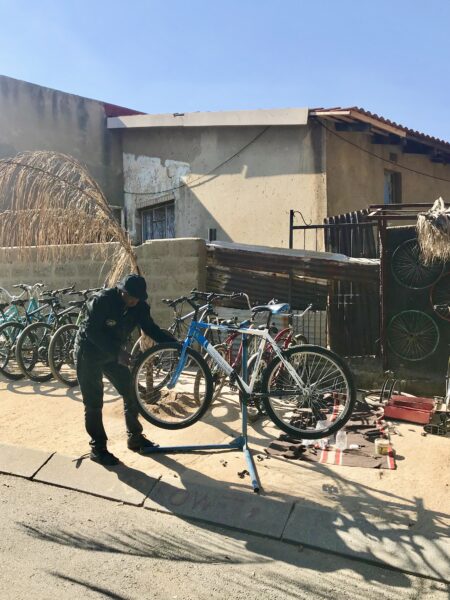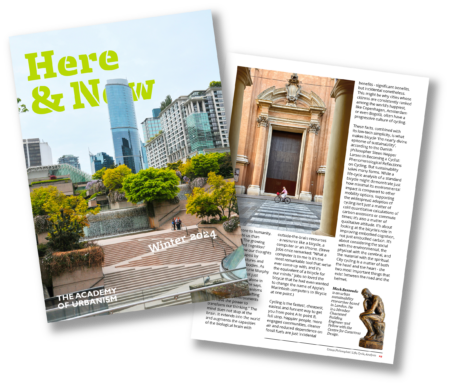When it was announced at our Congress in Eindhoven last summer that I was to succeed David Rudlin as Chair of The Academy of Urbanism, it would have been impossible to anticipate the scale of the change and disruption which lay ahead. At the commencement of my term of office on 1st February, Brexit was implemented and this appeared to be a significant event. However almost immediately the effects of the Covid-19 coronavirus pandemic became evident, making its impact felt on a global scale.
The Academy’s programme for 2020 was immediately disrupted by the subsequent lockdown. Having organised conferences in London, Dundee and Limerick early in the year events, such as our Spring Debate, Congress and regional activities, had to be cancelled and moved to 2021. In these changed circumstances our Board and support team have had to rapidly adapt to an online programme. We have already successfully held our Spring Debate and a series of weekly talks online and we have planned a programme of online events for the remainder of the year.
What has been most striking about this change to a virtual platform is that it has allowed the Academy to reach our members wherever they are located throughout Europe and further beyond. This has expanded the potential reach of the Academy to a wider audience. Future planned events will look at topics including Latin America Urbanism, Landscape and Urbanism, and a special joint AoU/Urban Design Group conference. For these events we plan to include speakers who will participate from North and South America, to maximise the potential of the Academy’s expanded reach.
The Covid-19 pandemic has demonstrated that the expectation of the continued success of science and medicine in combating disease which occurred over the course of the past century may have been overly optimistic. It has led to a recognition that significant interventions and restrictions are required by governments in order to prevent the spread of the virus and to protect lives. This has had, and will have, profound implications for how we live, work, communicate, commute and travel which will require us to look beyond our communities, regions, and even countries in order to protect as many lives as possible.
The positive reaction of governments and the majority of the population in response to this crisis has demonstrated that, with a similar shared approach, other challenges and threats to humanity – climate change, healthcare, poverty – can also be addressed. There has been a wider recognition that for continued sustainability we must consider the wellbeing of others as well as our own. As we reflect on society’s response to the Covid-19 crisis there is a sense that a growing environmentally astute class will demand further change, both from governments and individuals, in order to create a more equitable and sustainable future.
During the lockdown period I have been reading A Journal of the Plague Year by Daniel Defoe. It is an account of one man’s experience of the year 1665, in which the bubonic plague struck the City of London. One year later in September 1666 the Great Fire swept through the central area gutting the medieval City within the old Roman city wall.
These two disasters led many to question whether London had a future, yet within a relatively short time it had evolved and emerged stronger than ever. Throughout history plagues, epidemics, earthquakes, flooding and other natural disasters have threatened, and continue to threaten, cities and towns throughout the globe. Cities such as San Francisco, Los Angeles, Lisbon, Shanghai, Kolkata, Jakarta, Osaka and Tokyo exist under a permanent threat of either earthquake, tsunami, flood or other natural disasters. These constant threats have resulted in such cities evolving to become more resilient.
Some have suggested that the response to the current crisis will lead to changes in social and working practices and a dispersal of some of the population to the suburbs. However, a more likely outcome is that work practices will change and that this presents opportunities for our cities and towns to evolve as they have done throughout history. Given the statistics on the predicted rise in urban living, a trend which the UN says is set to increase to approximately 70% by 2050, it is a challenge for urbanists to inspire and lead the positive changes which will be required to our cities and towns in response to the challenges posed by the pandemic crisis.
What the Covid-19 crisis has demonstrated is the capacity of mankind to respond to threats to its existence in a manner which manifests concern and empathy for those most under threat from the virus. During the crisis we have shown a surprising ability to embrace physical, social and behavioural change to combat the threat of the pandemic. This type of response indicates the potential for mankind to address, not only the climate emergency, but the other significant challenges of our time: the housing crisis, health and wellbeing, left-behind cities and towns and the sustainable changes required, to mobility. These issues, which are of increasing concern to a growing proportion of citizens, are likely to become key political issues on a global basis in the future.
This edition of the AoU Journal ‘Here & Now’ contains a series of articles focused on climate change and its implications for our towns and cities. In her article on the climate emergency, Ina Dimireva AoU emphasises the need to take “transformative action” and “to build a vision” to communicate a city’s aspiration. She emphasises that communicating this vision is the crucial step in focusing citizens attention as to what is truly important to the city.
In his article Reinventing town centres: a call for action now, Nicholas Falk AoU has suggested that “while many people may emerge from the Coronavirus pandemic tragedy relatively unscathed, many of our town centres may well not”. The problems that such an emerging trend would present will be enormously challenging.
Through its Urbanism Awards assessments the Academy has identified exemplary solutions and good practice in places that have often overcome significant challenges to achieve successful outcomes. These include Award winners Leipzig, Eindhoven, Bilbao, Bradford and Kilkenny which lost key industries but were reinvented due to the resilience and adaptability of their citizens. The Academy will continue its organisation of events, discussions and research to identify the mechanisms which have led to these successes. Our aim in the coming period will be to disseminate the lessons which can be learned from these cities and towns to inform strategies and responses to address the challenges presented by the Covid-19 pandemic.
I believe that good urbanism can inspire the changes we need to implement to enable our cities and towns to operate in a less harmful and more sustainable way in the future.
The objective of these changes should be to provide the conditions upon which people can thrive in a healthy, productive and equitable way. The mission of The Academy of Urbanism is to understand, promote and celebrate what makes places successful in the long-term and, importantly, to apply these lessons to the improvement of towns and cities across Europe and beyond. We look forward to you joining us in our quest.
Tony Reddy is chair of The Academy of Urbanism






